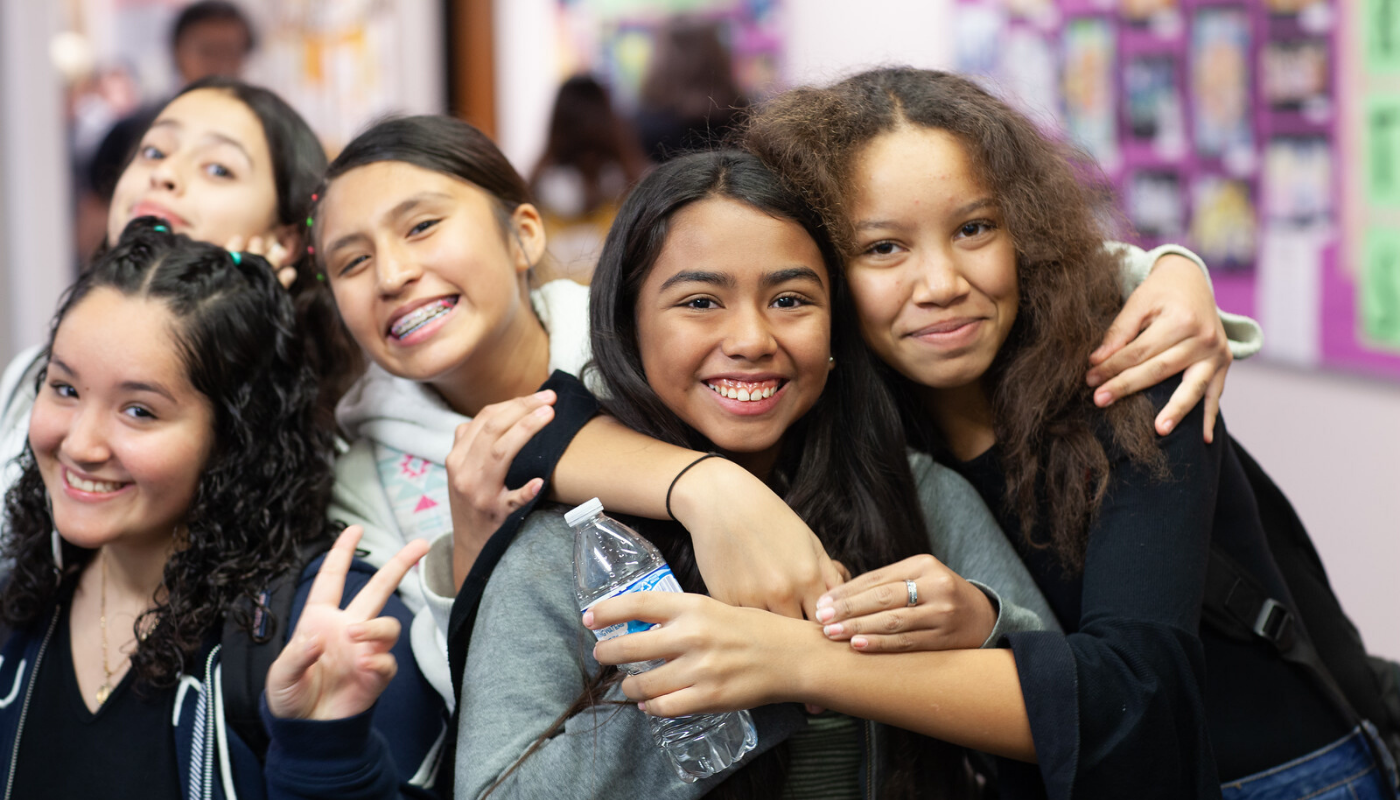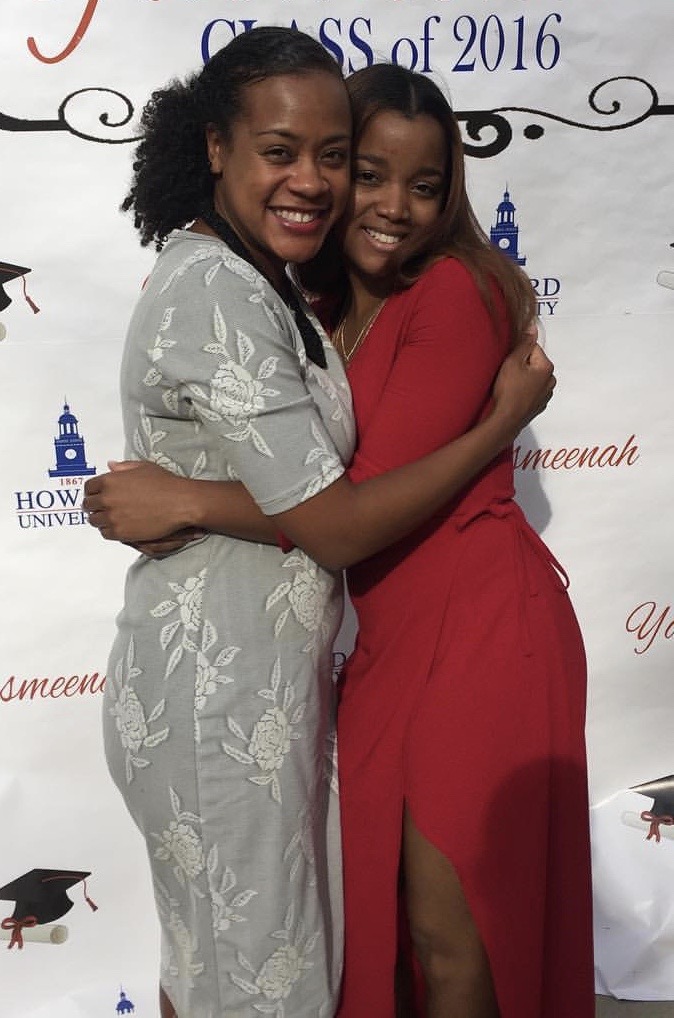
Early in my career as a teacher, a school leader shared a story about the Masaai warriors and their traditional greeting: “Kasserian Ingera,” which means “And how are the children?” In the Masaai community, the well-being of the children is of the highest value and the response, “all the children are well,” indicates that life, for them, is good.
Over the past 17 years as an educator, this message has deeply resonated with me. I firmly believe our lives and futures depend on how we care for and educate our children. In my work as a Success Manager at Summit Learning, I find myself asking school leaders that very question:
“And how are the children?”
Had you asked me that question growing up, I would have said, “Children are great, but I’m becoming a doctor, not a teacher.” However, from playing a very sophisticated version of school with my grandmother to spending much of my adolescence babysitting, tutoring, and teaching kids at church, the writing was always on the wall. I was destined to become an educator. It’s why I often say, “I didn’t choose education, it chose me.” And when it did, I began to realize that this was more than a career, it was a calling. A calling to educate. A calling to inspire. And, as I would quickly learn, a calling to create a more equitable educational experience.
Seeing inequity firsthand
My first year of teaching forced me to reckon with and confront the uncomfortable realities of educational inequity. I often compared my own educational experience with that of my students.
The suburban, mostly white, Southern Jersey middle school I attended was abundantly resourced: I learned from multiple, highly-experienced teachers and participated in programs that took me on college visits and allowed me to learn from medical professionals at a local hospital. While I wonder the impact having more than one black teacher would have had on my experience, I was undeniably prepared for the demands of college and career.

Years later, in the urban, mostly Black, Northern New Jersey school where I first taught, I recall my shock at having to ration paper and limit the number of copies of materials. There wasn’t enough paper to meet the demands of all the teachers in those last months of the school year. While dedicated to helping our students learn, a number of us were still learning ourselves as novice educators. At schools throughout our district, some students could progress from grade to grade learning only from newer teachers or long term substitutes.
Krista attending the college graduation party of
one of the students she taught in 6th grade ten years prior.
I also grappled with the fact that my students were growing up less than 100 miles away from my nieces and nephews, who would eventually have a school experience similar to my own — something that was completely different from my students. If I didn’t think this was good enough for my nieces and nephews, why should it be good enough for any children?
“And how are the children?”
Despite the inequities in resources and access, the children I taught are just as smart and capable as any other children. They are full of potential and promise and worthy of our belief, high expectations, and love — despite anyone’s preconceived notions or expectations simply because of how they look and where they are from. It was through those early years as an educator that I discovered my true purpose.
I became a teacher to educate and inspire. So my students would experience having a Black teacher. However, I stayed a teacher to do my part to ensure that kids from zip code 07107 would have just as many opportunities as kids from 08086 because they deserved it just as much.
My impact on education
How could I contribute to ensuring equitable opportunities? I could become a better teacher. I was new, but my kids couldn’t afford for me to be inexperienced.
After my first few years, I had the privilege to join a school team where I received coaching and professional development. As I grew my skills and became more effective, I realized that we, teachers and leaders, needed to better help kids reach positive outcomes. To not just talk about college and careers, but to truly prepare our kids with the tools and skills to thrive. Over the course of my journey, I was called to make an impact on even more kids. It wasn’t enough for my students to just have teachers who looked like them, they also needed leaders who could be their seat and voice at the table. Deeply powerful work happens at the classroom level, something I never want to lose sight of. But true change and equity is created for our babies when we impact systems.
“The children are well”
Today, I make an impact by supporting school leadership teams and teachers in using data to transform instruction. With Summit Learning, kids from all kinds of communities can develop the habits and skills needed to live fulfilling lives. While results and outcomes matter, we cannot forget that we are serving human beings and their spectrums of need extend beyond academic support. Students need to be seen, heard, and supported through caring relationships with adults. One of the pillars of Summit Learning is that all students have 1:1 mentoring to develop those relationships. That purposeful inclusion of acknowledging the whole child is how I knew Summit Learning was the place for me. I know the impact building relationships with my students had and I can only imagine how much more those school communities would have benefitted from having a more consistent and structured approach like this.
If you ask me now, “And how are the children?” I would say they are still smart, still capable, and full of promise. But often, they’re stuck in an inequitable system that doesn’t help them reach their potential. I am grateful for the opportunity to lead and advocate for all kids to have an equitable education. While we aren’t yet where we need to be, I look forward with hope and belief that one day soon I’ll be able to answer, “the children are well.”

